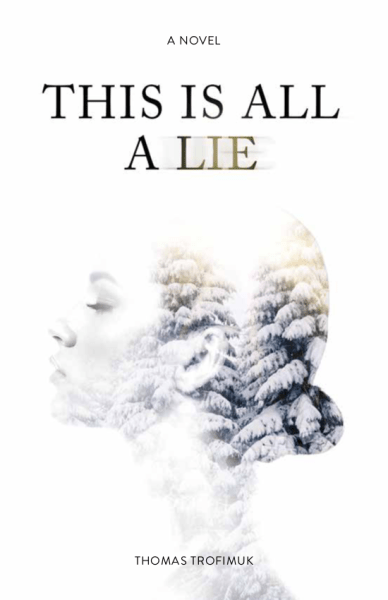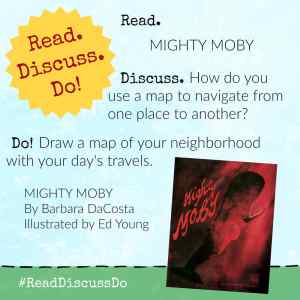
Do we honestly consider the relationships we are involved in? Do we even look at them in a linear fashion? Or do we look at them at a jumble of thoughts and reflections in our minds? More than likely we consider the ending before the beginning while recalling bits of history and snippets of therapy when we think about who we connect with. And that is one of the realizations that Thomas Trofimuk has us honestly consider in his book This Is All A Lie.
Page 303
You might know people who would be bothered by the placement of the acknowledgements at the beginning of this book. You might be the kind of person who likes the acknowledgements at the back of the book where they belong – right beside the note of the font and a picture of the author. Mea culpa. Mea culpa.
Here is another possible lie: you will be introduced to a character in the chapter immediately following these acknowledgements. His name is Raymond Daniels but nobody calls him Raymond except for an aunt in Billings, Montana, who owns seventeen cats and, as Ray`s mom used to say, really enjoys the wine. Ray works as an arborist with the city, and sometimes he talks to trees. He will be up in a bucket, suspended within the high branches of a popular, or an elm, or a conifer and he will have an impulse to talk with the tree. Sometimes, Ray Daniels surrenders to the impulse.
It’s tempting to show Ray having a conversation with a tree here, but to really understand him there is a moment three months after his mom dies that is perhaps more illuminating. His mom’s house has been sold, and the new owners will take possession in a couple weeks. For the previous three weekends, he and Tulah and the girls have been clearing out the contents of his mom’s life. For the girls, it was for the first hour, then just hard work and boring. After two hours, Tulah drove the girls to her mom’s house.
Trofimuk has gleefully mixed up this book. He has placed the epilogue and the acknowledgements near the beginning. The pages run backwards. The chapter numbers sometimes come up at half increments. And instead of just mentioning the typeface, he describes elements of it’s designer’s life in vivid detail. Yet in all this mess, readers get an insight to the emotional relationships that encompass Ray and Tulah. Trofimuk has stirred up a mess of a narrative here but he has given a glimpse to the human condition of relationships.
Pages 215-214
He looks at the elms along the street. One of them is in trouble. It was a dry year. Rain was sporadic and not enough. A gust of wind bends the trees and a flurry of leaves is scattered across the road.
Ray`s job as an arborist was not the original career he’d pursued. Ray had his law degree. He was practising in a well-respected firm. Being a lawyer was what he thought he wanted. However, on the fourth month of the second year of articling with the law firm of Brice, Jones & Farnsworth, Ray woke up at 4 a. m. with chest pains. This was the beginning of his realization that law was not for him. At the hospital, the doctors were surprised by Ray’s blood pressure but his heart was fine. For now. They said it was a panic attack. A breakdown of everything that protects us from being overwhelmed by anxiety. He need to move more He needed to find a way to cope with stress. But Ray knew the slow build of twitchy unhappiness from his work as a lawyer was killing him. It wasn’t stress and it wasn’t the hours – it was being completely aware of his unhappiness. There was a stench around the entire occupation that started to stick to his skin. Even the more benign fields of law contained a sleaziness factor. The so-called “heart incident” was an epiphany for Ray. The occupation of lawyer was killing him. He was one of two stars among the eight articling lawyers with the firm but he was ready to turn away. It was not easy, but he knew he was ready.
He’d spent four summers and a year out of high school working at his uncle’s green house and he was drawn to the memory of that joyful time. Ray’s training was not formal, but it was extensive.
He got a job with the city’s Parks department. It was hard work, and they kept trying to promote him into positions where he no long actually worked on trees – but rather, managed other people who worked with trees. Ray kept refusing these promotions. But, two weeks ago he accepted a promotion with the conditions of freedom. He managed a team, he was in the field as much as he wanted, and he got a hefty raise.
It was easier to say what he did now. Arborist was easier on his conscience than lawyer. It was an additional syllable but it was easier to say. He smiles at the memory of a woman at a party who asked him what he did and he told her, except she heard abortionist. “You actually tell people that?~ He face was a squished horror of revulsion. “What, you don’t like trees?” Ray said. But she was already gone.
This is a complex novel but there is a beauty in that complexity. Readers come to the realization that human nature is not simple linear construct. We deal on a daily basis with not only our own emotions and desires but the latent desires and emotions of other people and that whole construct can be messy and tiring. Trofimuk has documented that complexity of the human condition in a muddled fashion, but that is way life is.
Page 215
“I want you back, Ray,” Nancy says. “Even though you are a prick, I want you back. Even though you’re mostly an asshole, I want things to be the same as they were.”
Ray is not sure what she just said, of for how long she’s been talking.
“What?”
“What do you mean – what? I think I’ve been quite clear.”
“You want me back,” he says.
“Yes. I want all of you, but I’ll take what I can get.”
“Why?”
“Because I love you. Love is about compromise. It’s about bending. It’s about taking what you can get.”
“I’m sorry?”
“I’m talking about love”
“I don’t think that’s love, Nancy”
“I accept you as you are,” she says.
“You don’t even know me.”
She leans forward and pours another drink. “I know you cheat on your wife. And I know your cock really well.”
“Yes, I know you do, but that’s not exactly me. It’s a body part.”
Ray looks at his parking receipt, and halfway down the block he can see a uniformed woman checking the windshields of cars. His parking slip is good for six more minutes. “Any chance we can finish up in the next six minutes?”
Thomas Trofimuk has documented an honest element of the human condition in his book This Is All A Lie. The plot is muddled and disjointed, the pages run backwards and the epilogue is near the beginning. But reading and finishing the book is an enlightening experience. Truly a unique piece of literature.
*****
Link to Great Plains Publications website for This Is All A Lie.
Link to Thomas Trofimuk’s website
Share this:- More





